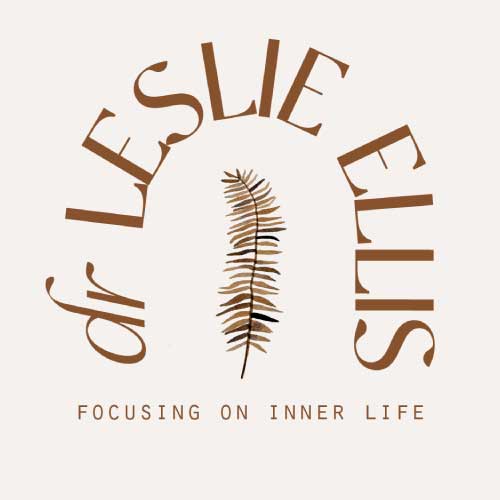Veterans and dreams: Special considerations for treating moral injury and lucid nightmares
By Dr. Leslie Ellis
Sometimes, traumatic injury is not just an overwhelming event, but one that constitutes a deep moral injury. This kind of trauma, more common among veterans, requires a uniquely sensitive approach. At the most recent conference for the International Association for the Study of Dreams (IASD, June 2021), keynote speaker Eduardo Duran, addressed the complexities of treating the moral injury many veterans suffer – where trauma is not just about what you have witnessed and experienced, but also about things you have done or failed to do in the context of battle, where the usual societal rules do not apply. Taking the life of another or failing to save someone’s life, for example, may lead to devastating moral injury.
An indigenous perspective on treating moral injury
Duran brings an indigenous perspective to the question of moral injury, and speaks of the importance of redressing balance. A moral injury refers to an act that weighs heavily on one’s conscience, characterized by profound guilt and shame. In his book, Healing the Soul Wound (2019), Duran writes of the indigenous teachings which say there is an agreement or contract made when one warrior takes the life of another. “Taking anything requires that a balancing act occur in order to harmonize the action. Everything in the universe seeks balance, and actions taken in any situation will either balance themselves unconsciously through the manifestation of symptoms, or will enhance human consciousness if understood from a psycho-spiritual perspective.”
At the IASD conference, Duran spoke of how in some indigenous tribes, taking the life of another indebted the warrior to the deceased soldier’s family for his lifetime. Often those who have taken a life dream of the deceased, both those whose lives they may have directly or indirectly taken, and they also dream of compatriots who lost their lives in battle. These dreams are a constant reminder that keeps their suffering alive, sometimes for decades, unless some kind of healing takes place. There is an understanding that while different rules apply during wartime, there is a need for balance and restitution upon returning to peace, and that these acts of atonement are as important for the agressor as they are for the victims of violence.
Practically speaking, this means that a soldier who has taken a life must make amends in some way to the person or the family and community whose life they have taken. This can be done through offerings, direct service, ceremony, therapy and ultimately, self-forgiveness. Duran said the pull toward suicide in such cases is may also be seen as an attempt to restore balance (a life for a life) but one that merely doubles down on losses. He calls suicide a desire for transformation, an important call, though not one to be taken literally.
In many indigenous traditions, suicide is a spirit that calls for transformation, which can lead to a spiritual rebirth, and a new life. Duran believes Western paradigms misinterpret this as suicidal ideation, as an impulse to take one’s own life in the physical realm. He said it’s crucial to not only treat PTSD symptoms, but also the deep moral injury that can lead to a desire for death. “A larger issue of soul separation is what is calling for a transforming event, such as we encounter in death. Therapeutic ceremony that allows for soul restoration is a must.”
Moral injury leads to higher suicide risk
A recent study (Battles et al., 2021) confirmed that suicide risk is higher among those veterans who have suffered a moral injury, which has symptoms in common with PTSD, but also a unique and complex presentation. The researchers found that those with strong guilt and shame, as well as comorbid psychiatric conditions, carried the highest suicide risk. The symptom picture differs from the flashbacks, nightmares and hypervigilance associated with PTSD. Moral injury and the shame associated with it bring depression, anxiety, loss of trust, and social alienation. The researchers concluded that while there is overlap between moral injury and PTSD, there are distinctive differences that need to be considered in treatment and prevention of suicide.
Another recent article addressing the impact of war on veterans found that the way they dream has unique characteristics. Miller, Ross and Harb (2021) studied the dreams of 54 veterans with PTSD and found that more than half of them were experiencing lucid nightmares of the most challenging variety. Participants were aware they were dreaming, but this did not lend them greater control over these distressing dreams. Instead, they reported feeling stuck, anxious and unable to wake themselves up from their distressing dreams.
Normally, lucid dreaming is associated with feelings of greater well-being, autonomy, assertiveness and confidence, but not in these cases. Although lucid dreaming has been studied as a treatment for traumatic nightmares, in these cases, the notion of taking control and achieving mastery over the dream content is not viewed as a promising pathway. The authors suggest that helping veterans who suffer from lucid nightmares to learn to distinguish these dreams from reality might be a useful focus of treatment.
In this and other recent studies, it is apparent that the treatment of veterans suffering from past-traumatic and/or moral injury is a complex business, and one that deserves further attention and study, especially because it may help reduce the high prevalence of suicide in this clinical population. It’s important for clinicians to understand that moral injury, and lucid nightmares are among the complex challenges in working with veterans, but they are treatable. There is hope.
If you are interested in learning more about nightmares and their treatment, sign up for my short, focused online course. Because I feel this material is important to disseminate, the course is always open, is self-paced, and currently discounted during the virus crisis. Please ask your clients if they have nightmares, and let them know they are treatable. Check out our Short Focused Course on Nightmare Treatment using THIS LINK.
References
Battles, A. R., Jinkerson, J., Kelley, M. L., & Mason, R. A. (2021). Structural examination of moral injury and PTSD and their associations with suicidal behavior among combat veterans. Journal of Community Engagement and Scholarship, 13(4).
Duran, E. (2019). Healing the soul wound: Trauma-informed counseling for indigenous communities. New York, NY: Teachers College Press, Columbia University.
Miller, K. E., Ross, R. J., & Harb, G. C. (2021). Lucid Dreams in Veterans with Posttraumatic Stress Disorder Include Nightmares. Dreaming, 31(2), 117-127.

